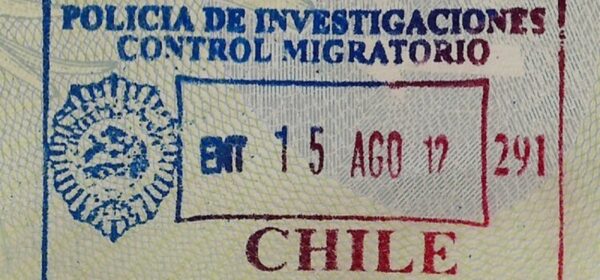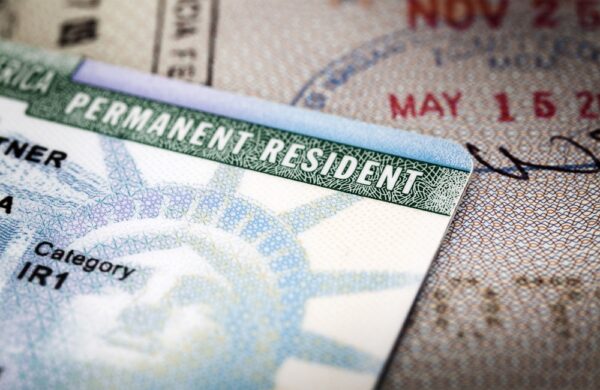Vietnam is renowned for its bustling cities, breathtaking scenery, and rich cultural heritage. Understanding Vietnam immigration process is essential for those interested in exploring this unique destination.
Navigating the country's immigration requirements can be quite challenging, but with the right and accurate details, you're good to go. Here, we'll examine every aspect of the immigration process, including visa types, the application process, and more. Let's go!
Benefits of Vietnam Immigration
If you’re thinking of immigrating to Vietnam, here are some of the benefits of relocating to the country:
1. Affordable Cost of Living
Vietnam's inexpensive cost of living is one of the main attractions for foreigners looking to relocate there. While it could take some getting used to the new currency (Vietnamese dong) and the seemingly high prices, most goods and services are relatively affordable. Not only are local wines and beers very reasonably priced, but low rental prices are also a plus when looking for housing.
2. Paradise for Food Lovers
Vietnam's cuisine is highly regarded globally for a good reason. It uses healthful ingredients and distinctive flavors, a blend of French cooking and common Asian flavors.
Safety
Vietnam is a safe place to live. Problems are unlikely to arise because of the low crime rate. There are very few violent crimes; pickpocketing and tourist scams are the most frequent crimes.
3. Easy to Get a Job
Finding a job in Vietnam can be simple for foreign workers and global nomads, particularly in teaching. There is a high need for teachers in Vietnam, and teaching English to foreigners seems to be the key to traveling abroad. After coming to Vietnam, teachers can use social media and networking to obtain well-paying jobs swiftly. While obtaining a job before moving has advantages as well, this simplicity of use might not be applicable to all businesses and employment sectors.
4. Great private healthcare
Vietnam's private healthcare industry provides better facilities and highly skilled medical personnel from the United States, Japan, South Korea, and France than the governmental healthcare system. This is why it’s one of the best countries to relocate to.
Vietnam Entry Requirements
One of the first things to consider when planning travel to Vietnam is the immigration laws in place there. Foreign travelers to Vietnam must follow strict entry and stay laws and regulations. All immigration-related concerns in Vietnam are managed by the Department of Immigration, which is part of the Ministry of Public Security.
Except for nationals of visa-exempt countries, most tourists to Vietnam will require a valid Vietnam visa to enter. Entering Vietnam requires a valid passport and a Vietnam visa (or a letter confirming visa approval from an authorized Vietnam tour operator). Furthermore, per the government's Resolution 127, electronic visas will be available for nationals of all nations and territories to enter Vietnam through any 42 international border gateways. We'll discuss further about the e-visas later in this article.
Vietnam Visa Types
Vietnam provides a range of visas to suit various travel needs and lengths of stay. Having a clear understanding of options can assist visitors in selecting the best visa for their needs. Vietnam frequently issues the following kinds of visas:
Tourist Visa (DL)
The tourist visa is perfect for visitors to Vietnam who want to relax or explore the sights. It usually allows for a single or several entries within a set time frame, ranging from 15 to 90 days.
Student Visa (DH)
Anyone who intends to study in Vietnam must get a student visa. You must have an admission letter from a recognized Vietnamese educational institution to get a student visa. Usually, the visa is valid for the whole term of the study program. If you’re planning Malaysia immigration for educational purposes, this visa is for you.
Transit Visa
Anyone traveling through Vietnam en route to another country must get a transit visa. It permits a brief visit to Vietnam, often no more than five days.
Work Visa (LD)
Foreign citizens who have found or been offered a job in Vietnam must get a work visa. To acquire a work visa, you must first obtain a work permit from Vietnam's Department of Labour, Invalids, and Social Affairs. This kind of visa necessitates additional paperwork to establish the job arrangement and sponsorship from a Vietnamese employer or group. The maximum validity period for this kind of visa to Vietnam is two years. To extend your stay in Vietnam, you must apply for an LD temporary residency card with a two-year maximum validity period. This visa is for you if you intend to immigrate to Vietnam for work purposes.
Business Visa (DN)
Business visas are for people visiting Vietnam on business trips for negotiations, conferences, or meetings. They are often valid for longer periods than tourist visas and can allow for one or more entries.
Diplomatic Visa (NG1 – NG4)
A diplomatic visa to Vietnam is issued to individuals who work with consulate staff or pay them a brief visit and members of a delegation invited to visit Vietnam by Vietnamese ministries or other high-ranking government officials. A diplomatic visa to Vietnam costs nothing unless the embassy and the applicant's home nation agree otherwise. This visa is valid for a year.
Investor visa
If you're moving to Vietnam to invest, this visa is for you. The Vietnamese government grants investment visas to foreign citizens who meet the country's financial standards and have the required funds to make investments there. The type of visa you are seeking determines the different financial requirements.
Vietnam Immigration Through Dependents
If your family members have a Vietnam dependent visa (TT Visa), they can come live with you in Vietnam. This category of visa is granted to:
- Children
- Spouses
- Parents
- Family members of DT1-3, LV1-2, NN1-2, PV1, DH,LS and LD1-2 holders.
Vietnam Visa Requirements
When applying for a Vietnam visa, various documents are required to back up the application and verify the traveler's eligibility. The paperwork requirements may differ depending on the visa category and the applicant's situation. Here are the documents you'll need when applying for the visa:
Your passport: Processing of visas requires a passport that is now valid and has enough remaining validity. A minimum of two blank pages in the passport are required for visa stamps.
Passport-size photo: Visa application materials usually require recent passport-sized images that adhere to the approved dimensions and quality standards.
Application form: Applicants must ensure that the information they supply on the visa application form is correct and consistent with the information in other supporting papers.
Proof of Vietnam visa fee payment: You must present proof, such as a receipt, that you have paid the visa fee.
Proof of travel itinerary: Supporting documentation for the visa application may include records of the desired travel dates, lodging schedule, and scheduled activities in Vietnam.
Additional Supporting Documents
Certain types of visas may require applicants to submit additional documentation to support their intended visit, financial situation, or other pertinent information. These extra documents might consist of the following:
- Health certificates
- Financial statements
- Invitation letters
- Criminal background certificate
- Proof of professional background
- Copies of the applicant's qualifications and degree
- Vietnam work permit application form
- Work contract
- Employer's business registration certificate
- Proof of Vietnam travel health insurance
- Admission document by Vietnam school
- Copy of documents proving entry purpose of study program
- Letter of introduction/authorization
How to Apply for a Vietnam Visa
One of the following methods is available for you to apply for a Vietnam visa:
- In person, at a Vietnamese embassy or consulate overseas.
- Online, if you're a citizen of the eligible countries (e-visa)
Applying at an Embassy or Consulate
While the particular steps vary significantly depending on the visa category, the basic process usually involves the following stages:
Complete the visa application form: Fill out the form and provide accurate and genuine information.
Schedule a visa appointment: You might need to make an appointment to submit your application and supporting documentation, depending on the type of visa and the location. Also, you might have to pay the visa fee during the appointment.
Pay the visa fee: You can do this online, in person, or through a specific payment method.
Await response: Once your application has been submitted,
you will have to wait for your visa to be processed. If your visa is granted, you can pick it up in person or receive it via email. Make sure the data on the visa corresponds with the information on your passport. Once you get your visa, you can begin your Vietnam immigration.
Vietnam e-visa
One kind of visa issued to foreign nationals by the Vietnamese Immigration Department's computer system is the electronic visa or E-visa. You may use a Vietnam E-Visa for one entrance or multiple entries for a maximum of ninety days. With an electronic visa, you can enter and remain in Vietnam for a maximum of ninety days using one or more entries.
You can get a Vietnam e-visa online; going to an embassy or paying an airport stamping fee is unnecessary. To get an e-visa, you will require a valid passport and a digital photo. You'll also need your credit card to pay the visa fee. Please visit the Vietnamese Immigration Department's official website to see if you qualify for a Vietnam e-visa and to begin the application process. Here are the steps involved to get your Vietnam visa online:
- Use the Vietnam Immigration Portal to begin the online application process.
- Include a passport-sized photo of yourself together with a scanned copy of your passport.
- Complete the online application form by providing all necessary information.
- Pay the e-visa fee.
- Await the processing of the visa, which could take up to three working days. You can find out if a decision has been made by visiting this page.
Visa Processing Time
The duration required for the processing of a Vietnam visa is:
For an eVisa to Vietnam, roughly three working days
A Vietnam visa at an embassy or consulate varies according to the particular embassy or consulate.
Vietnam Visa Fees
The cost of a visa to Vietnam varies according to the kind of visa requested, the nationality of the visitor, and the mode of processing selected. Visa fees are often determined by the type of visa, the number of entries allowed, and any required extra services. But note that:
- E-visas and tourist visas cost between $25 and $50
- Business visas cost between $80 to $180
- A work visa costs between $100 and $200
- Student visas cost between $25 to $135
Conclusion
Vietnam immigration offers a gateway to a vibrant culture and growing economy. With different visa options and a streamlined process, the country welcomes individuals and families seeking new opportunities. Navigate the Vietnam immigration process and discover the possibilities this beautiful country has to offer.
















